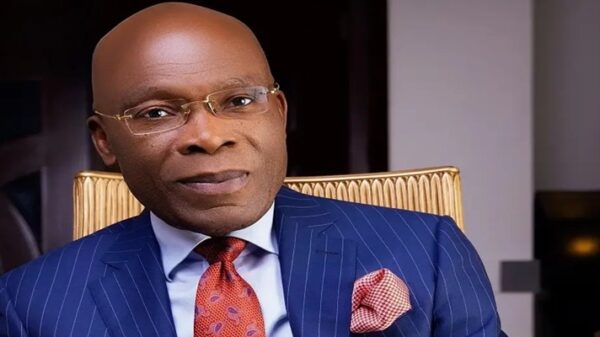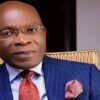The United States Agency for International Development (USAID) through its Accountability,Transparency and Effectiveness (State2State) project, has urged states across Nigeria to explore robust Internally Generated Revenue (IGR) strategies.
Mr John Onyeukwu, Deputy Chief of Party of the State2State project, made the call in an interview with the News Agency of Nigeria on Friday in Abuja.
Onyeukwu was speaking on the sideline of a three-day workshop for six focal states; Akwa Ibom, Adamawa, Bauchi, Ebonyi, Gombe and Sokoto.
According to him, it is imperative for states to boost their internally generated revenue.
He noted that with the global shift from fossil fuel, which accounted largely for Nigeria’s foreign exchange, it was therefore imperative for states to fashion out practical ways of generating income, from other sources for improved goverce.
Onyeukwu stressed that it was equally important for state governments to live up to their promise to the people, particularly in the provision of social services like basic education, primary healthcare and Water Sanitation and Hygiene(WaSH).
“The essence of this workshop is for State2State to provide technical support to six focal states on how to improve their public fice management.
“The whole domain of fice management has to do so with budget, audit, procurement and revenue generation.
“We have held workshops on these various aspects and the focus of this workshop is revenue, which is critical to the smooth running of any government.
“We are working in six states to rethink their internal revenue generation strategy.
“So, what we are doing in the workshop is for each of the six states to begin the process and discussion on a revenue development strategy document,” he stated.
According to him, the document is expected to help the states improve their internally generated revenue and to provide the services required.
“This means the amount that states have access to, has reduced drastically and inflation has also ridiculed the economies of the states.
“So, it’s important that states begin to find alternative and sustainable ways of generating revenue to take care of their population,” he said.
The deputy chief of party of the State2State project then identified some strategies to be adopted by states, to increase their revenue generation.
“Globally, fossil fuel is no more fashionable, many car manufacturers are moving to electric cars, so there is more that we need to do.
“Taxation is also not the way out, especially taxing the poor, it is like beating a dead horse, because there is not much that can be generated from them.
“What states need to do is to create wealth through enabling environment, by harnessing alternative source of income.
“When you create the enabling environment for people to create wealth, then you will be able to tax.
“For those relying largely on borrowing, they cannot have the money paid without creating wealth,” he said.
Onyeukwu pointed out that ensuring a robust IGR required a holistic approach.
He added that states should not only explore tax, but investment in infrastructure, businesses like airlines, state hotels and Public Private Partnerships(PPP) among others.
According to him, when properly harnessed, the various areas will create jobs that states can tax from, adding that relying mainly on taxes from civil servants would not contribute much to good goverce.
Onyeukwu expressed optimism that more states beyond the six focal states would partner with State2State on the project for effective fice management.
reports that the State2State project is a five year project meant to run from 2020 to 2025.
It is designed to enable states run accountable ficial systems that will provide quality service in basic education, primary healthcare and other priority sectors.
![]()






























































